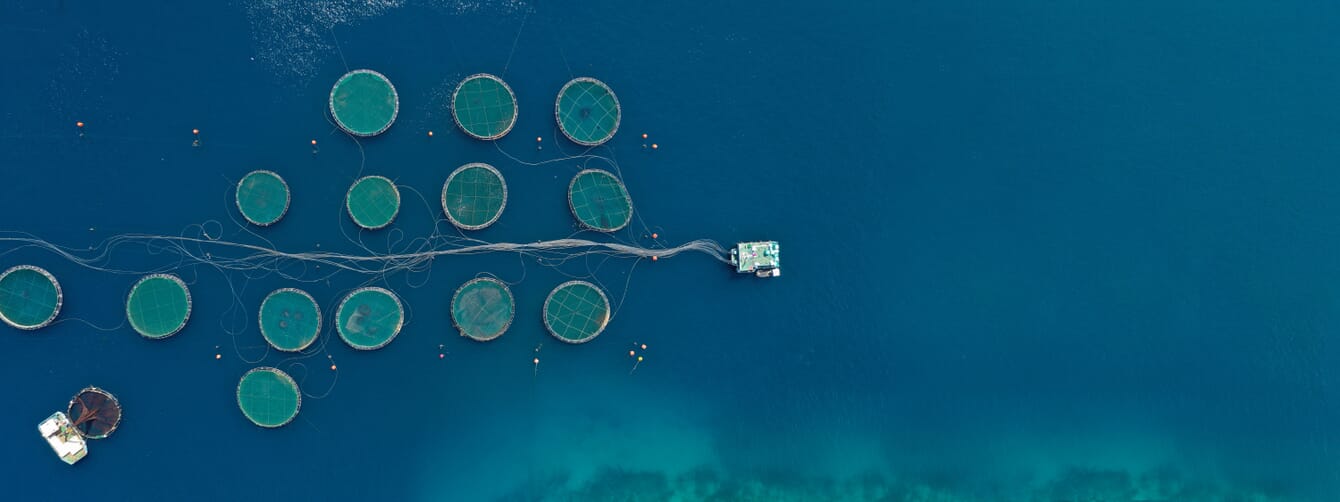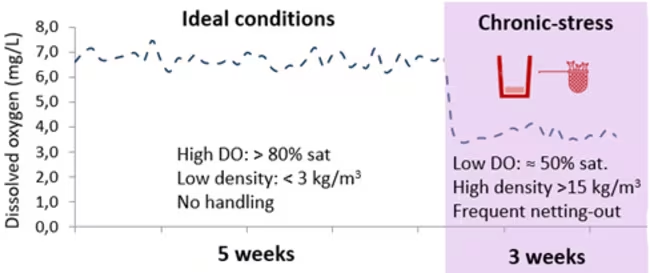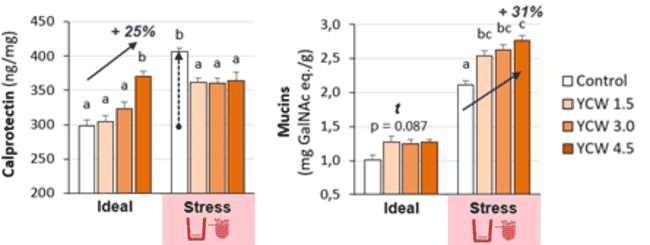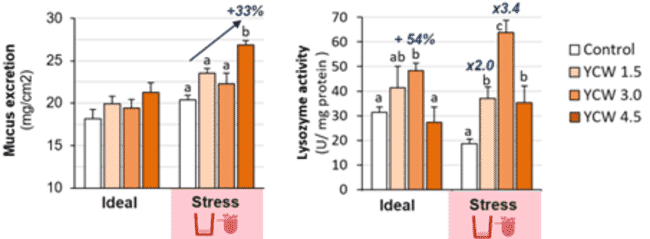
The Mediterranean seabass sector has more than doubled in volume in the last decade
Mediterranean net pen aquaculture is dependent upon a set of demanding management practices, with fish often exposed to pathogens and abrupt environmental fluctuations.
These challenges combine to exacerbate the risk of cumulative damages and disease, often resulting in poor performance, yet there are not always clear treatments or diagnostic protocols for farmers to follow.
In addition, optimising growth performance and feed efficiency is crucial, particularly in the context of the increasing costs of inputs such as feeds.
Functional feeds are widely used to prevent diseases and to optimise farmed fish health and performance. Ultimately, this positively contributes to the volume, cost and quality of the harvest. Backed by decades of successful application in aquaculture, yeast cell wall (YCW) products demonstrate some of the most wide-ranging benefits of all ingredients used in functional feeds.
How yeast cell walls support gut health and performance
YCWs contains mannan-oligosaccharides (MOS) and beta-glucans. On ingestion these trigger a cascade of immune and homeostatic processes in support of gut function and integrity, fish health and performance. However, MOS and beta-glucans are complex macromolecules that can widely vary in structure and properties, depending on the strain and origin of the yeast they are derived from.
To reap the rewards from YCW application, it is essential to go beyond the MOS and beta-glucan levels and deploy a well-documented product with a consistent manufacturing process and certified origin from a specialist provider. Optiwall is a novel YCW product from Lallemand Animal Nutrition, a leading producer of microbial-based solutions for animal nutrition. The product originates from a single and specific yeast strain, manufacturing plant and production process. It is down-processed by Lallemand to maximise the desired functionalities for the target application. The result is an affordable, consistent and effective product to support fish health and performance.
European seabass performance trial
A two-month trial was performed in Portugal in 2023, testing different levels of Optiwall supplementation in juvenile European seabass (starting bodyweight 11g; water temperature 22°C; salinity 36 ppt) in quadruplicate.
A baseline commercial diet for juvenile seabass was produced (20 percent fish meal; 15 percent land animal and 32 percent plant material; 46 percent crude protein; 16 percent crude fat; 21 MJ/kg) and supplemented with Optiwall at a dose of 0.0, 1.5, 3.0, and 4.5 kg/T feed. The fish were hand-fed to visual appetite over the trial’s duration.
The fish were first reared under ideal conditions for 5 weeks then chronically exposed to stressors for 3 weeks in the form of repeated handling (1 min. netting out twice weekly) and high-density-low oxygen levels by reducing the tanks‘ water levels (Figure 1).
The study evaluated each diet’s effects on production performance and on the gut and skin responses over the ideal and demanding trial periods:
- Growth and performance were assessed at the end of each period.
- Specific biomarkers of gut immune response and protection were evaluated (faecal levels of calprotectin and mucins).
- Gut and skin health and mucosal activity were assessed: skin mucous excretion was quantified, skin mucous quality was analysed for its anti-microbial property, and classical gut and skin histology was performed.

© Lallemand Animal Nutrition
Optiwall improves growth and feed performance
The trial showed that specific growth rates and feed conversion improved with increasing intake of Optiwall; by up to 6.7 percent and 8.3 percent respectively over the trial duration with YCW 4.5 (Figure 2).
During the challenge phase, as expected, growth and FCR markedly deteriorated across all groups. However, the loss of FCR was clearly mitigated in the YCW 4.5 group.

© Lallemand Animal Nutrition
Effect on the gut barrier
Calprotectin (CP) is secreted by white blood cells as a marker of immune activation elicited by stressors, tissue injury or microbial presence. It has beneficial properties at physiological levels (antimicrobial, oxidant scavenging and immune promotion), supporting gut barrier defence and integrity. Mucin is a constituent of secreted mucous, making it a marker of mucous excretion levels and an essential gatekeeper of mucosal protection and function.
Under the ideal phase of the trial, faecal CP increased with increasing YCW intake, indicating YCW detection and reinforcement of gut defences, as supported by higher mucin-levels at the end of Phase I (Figure 3). This was verified at the end of the stress-exposure phase, when Optiwall was shown to potentiate increased gut mucous excretion in a dose-dependent manner, as well as lower CP-levels, indicating reduced susceptibility and potential disturbance of the gut to the inflicted stressors.

© Lallemand Animal Nutrition
Improved skin barrier
As observed in the gut, skin mucous excretion increased with Optiwal intake in a dose-dependent manner (Figure 4). This was particularly marked following stress exposure (+37 percent excretion), when skin protection is most needed. Interestingly, the antimicrobial (lysozyme) activity of the mucous was also promoted by OPTIWALL when exposed to stressful conditions. However, at the higher dose tested, there was an apparent dilution of the antimicrobial activity related to the higher excretion level. Interestingly, in the group without supplementation (control), exposure to stress did not promote skin mucous excretion but tended to reduce its antimicrobial activity, confirming the benefits of functional feed ingredients.

© Lallemand Animal Nutrition
Conclusion
The new trial confirms the potential of Optiwall as an effective functional supplement to support seabass health (gut and skin robustness) and performance, when supplemented continuously for 8 weeks. This was particularly marked under stressful conditions when Optiwall supported gut and skin defence mechanisms (mucous excretion and antimicrobial properties) at a time when it was most needed. In-feed incorporation can be selected at between 1.5 to 4.5 kg/T feed, depending on the level of protection and performance targeted.
European seabass represents, with seabream, the major farmed fish species in the Mediterranean. The past decade has seen production of both species more than double, but the farms are exposed to ever-increasing biological risks and related costs.
In that context, evidence-based, preventive health solutions have become an essential tool to help achieve production targets and schedules with minimal reliance on medication. As a yeast-based ingredient optimised for animal health and performance, Optiwall provides broad and cost-effective benefits in support of fish robustness and farm performance.



